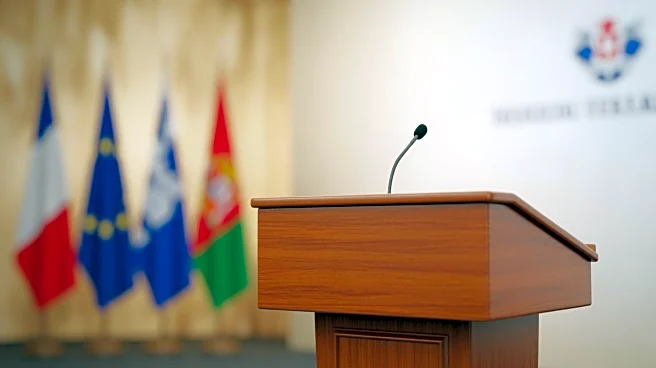What's Happening?
Hamas has publicly rejected a United States proposal concerning the establishment of an International Stabilization Force in Gaza. Hazam Qassem, a spokesperson for Hamas, criticized the draft proposal from
the United Nations Security Council (UNSC), stating that the group seeks a resolution that prevents Israeli encroachment on Gaza, the West Bank, and Jerusalem. This rejection comes amid ongoing tensions and military operations in the region, with Hamas emphasizing the need for self-determination and protection against external interference.
Why It's Important?
The rejection of the US proposal by Hamas highlights the persistent challenges in achieving peace and stability in the region. The demand for self-determination underscores the group's resistance to international interventions perceived as undermining their autonomy. This development could further complicate diplomatic efforts aimed at resolving the conflict, potentially leading to prolonged instability. The situation affects not only regional politics but also international relations, as stakeholders including the United States, Israel, and the United Nations navigate the complex dynamics of Middle Eastern geopolitics.
What's Next?
The ongoing rejection of international proposals by Hamas suggests that further negotiations and diplomatic efforts will be necessary to address the group's demands and the broader conflict. The United Nations and other international bodies may need to reassess their strategies to accommodate the calls for self-determination while ensuring regional security. Potential reactions from major stakeholders, including Israel and the United States, could influence the trajectory of future peace talks and interventions.
Beyond the Headlines
The insistence on self-determination by Hamas raises deeper questions about the long-term implications for Palestinian governance and regional autonomy. The rejection of external proposals may reflect broader sentiments within Palestinian society regarding sovereignty and resistance to perceived foreign control. This could lead to shifts in regional alliances and influence the cultural and political landscape in the Middle East.









